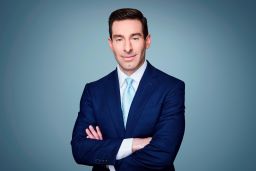Editor’s Note: In this weekly column “Cross Exam,” Elie Honig, a CNN legal analyst and former federal and state prosecutor, gives his take on the latest legal news. Post your questions below. The views expressed in this commentary are his own. View more opinion on CNN. Watch Honig answer readers’ questions on “CNN Newsroom with Ana Cabrera” at 5:40 p.m. ET Sundays.
I had to make plenty of tough decisions during my career as a prosecutor: who to investigate, what charges to bring, how to try a case and what sentence to recommend. That’s part of what makes the job so challenging – and rewarding.
But never in my 14 years did I face a dilemma quite like the one that prosecutors now encounter, as the coronavirus pandemic threatens the health of thousands of inmates in our jails and prisons across the country. Agree to early release of certain prisoners to minimize risk to inmates, prison staff and the general public? Or hold the line and fight to keep all inmates – people who have been arrested for and in some cases convicted of crimes – behind bars?

Many prosecutors nationwide have made the difficult but just decision in recent weeks. They have agreed to release a carefully selected group of prisoners from custody, to lessen the grave risks posed by the coronavirus crisis within our prisons and beyond.
It is difficult to think of any place more susceptible to the spread of the coronavirus than prisons. One leading public defender, David Patton, called prisons in the age of coronavirus a “disaster waiting to happen,” and another official called prisons “petri dishes.”
They’re both right. I’ve spent plenty of time working inside prisons, and it is difficult to imagine just how cramped and overcrowded so many of them are unless you’ve actually been in the buildings. Prisons also often offer subpar health services.
Unsurprisingly, the virus has ripped through prison populations around the country. And for anyone who thinks this problem is confined to inmates within the prison walls, remember this: Coronavirus threatens to spread not only among inmates, but also to guards and staff who return home after their shifts end. This is a prison problem, but also a broader societal problem.
Given this reality, several states – including New York, New Jersey, Ohio, Colorado, California and more – have begun to release certain inmates early with the goal of reducing overcrowding and potential spread of the virus.
The Justice Department, after considering its options for several weeks after the coronavirus exploded, has now joined the movement. The federal Bureau of Prisons (which is part of the Justice Department) recently released certain nonviolent and medically vulnerable inmates, including Michael Cohen, President Donald Trump’s former attorney.
The movement to relieve prison overcrowding in the age of coronavirus is about much more than Cohen – or any one inmate, though. Thousands of prisoners have been released across the country, accordingly reducing the threat of spreading the virus within, and beyond, prison walls.
The decision to release prisoners is not without risk or downside, of course. Our criminal justice system commonly releases people who have been charged with or convicted of crimes – through bail or parole, for example – and sometimes, inevitably, some of those people commit other crimes.
For example, Florida authorities released one inmate as part of its effort to slow the spread of coronavirus behind bars; that person allegedly committed a murder shortly after his release. And, on Monday, New York City Mayor Bill DeBlasio acknowledged that certain inmates released in New York have committed new crimes.
Simply put, there is no perfect system. The question becomes one of measuring, managing and mitigating risk. To that end, prosecutors and others in law enforcement can and largely have focused on the right factors in deciding who to release.
While the specifics vary, generally states have focused on releasing nonviolent offenders, pretrial detainees who have not yet been tried or convicted and elderly inmates who have lower rates of recidivism. Law enforcement officials also must monitor people once they are out of prison and must not hesitate to rearrest and reincarcerate anyone who violates any condition of their release.
Overall, prosecutors across the country have done the right thing by agreeing to targeted, strategic releases of low-risk inmates to slow the spread of the coronavirus inside our prisons and beyond.
The job is not about locking people up and throwing away the key; it’s about protecting the public, even – perhaps especially – in today’s extraordinary circumstances.
Now, your questions:
Mitch (California): Could President Donald Trump exert his will against a state by withholding federal funds or resources from that state?
The President appears to have essentially conceded that he does not, in fact, hold “total authority” to order state governors to reopen state government or private business. Trump might, however, attempt to influence state decision-making by threatening to withhold federal funds – a tactic he has used in other contexts to exert his administration’s policy preferences. (Trump is hardly alone; presidents of both parties have used this strategy throughout history).
But the President’s ability to withhold federal funds to compel state governors to “reopen” is limited. First, while the federal government generally can attach conditions to federal funds, any such conditions likely would have to be authorized by Congress, which holds primary constitutional power over federal spending.
Further, any conditions must reasonably relate to a legitimate policy goal. For example, the federal government can condition federal highway funds on state enforcement of laws imposing minimum ages on driving or drinking.
Finally, conditions must be imposed at the time the original grant of federal funding is made, so the President cannot attach new conditions on money that already is flowing to the states.
Beyond these legal obstacles, it could create political backlash if Trump tried to withhold federal money to compel a governor to reopen a state, contrary to that governor’s assessment of the state’s best interests.
So, while Trump theoretically might have power to withhold federal funds, he faces legal and political obstacles to actually carrying out any such a tactic.
Angie (California): Is there a specific law that says governors have the power to determine matters of public health?
Yes. Every state in the country has its own state law empowering the governor or other designated official to impose quarantine or other orders necessary to protect public health. Conversely, there is no federal statute empowering the president to overrule state governors on such matters – contrary to Trump’s claim that his “authority is total” to reverse such state-level quarantine orders. (Trump later walked back his claim, to an extent, saying he would “authorize” state governors to determine their own plans, though no such authorization is legally required).
This statutory framework is consistent with the Constitution itself.
The 10th Amendment provides that any powers not specifically granted to the federal government “are reserved to the states.” The Constitution does not specifically grant the federal government the right to regulate matters of public health and safety – hence that power is held by the individual states.
Gary (New York): I was under the impression that members of Congress were immune from insider trading laws and have taken advantage of that privilege for years. Is that correct?
Not anymore. In fact, the Justice Department reportedly is probing stock transactions made by certain lawmakers shortly before the market downturn caused by the coronavirus crisis. It remains to be seen whether the Justice Department will find sufficient evidence to bring criminal charges.
The federal insider trading statute makes it a crime to buy or sell securities based on “material, nonpublic” information.
Up until 2012, members of Congress enjoyed a special exemption and could not be charged criminally for stock transactions they conducted based on information learned during private or closed-door congressional meetings, or other official business.
But, in 2012, Congress passed and President Barack Obama signed into law the “STOCK” – “Stop Trading on Congressional Knowledge” – Act. That law effectively removed the exemption for senators and representatives, making them criminally liable for insider trading if they buy or sell stock based on material, nonpublic information – even if they learned that information in the course of their official congressional duties.
***************************
Three questions to watch:
1. Will the dispute about the extent of the President’s power in relation to state governors come to a head and result in a legal battle?
2. Will state authorities take legal action if private businesses attempt to reopen contrary to shutdown orders?
3. Will the Justice Department follow through on its declared intent to crack down on social distancing measures that purportedly might intrude on religious freedom?







